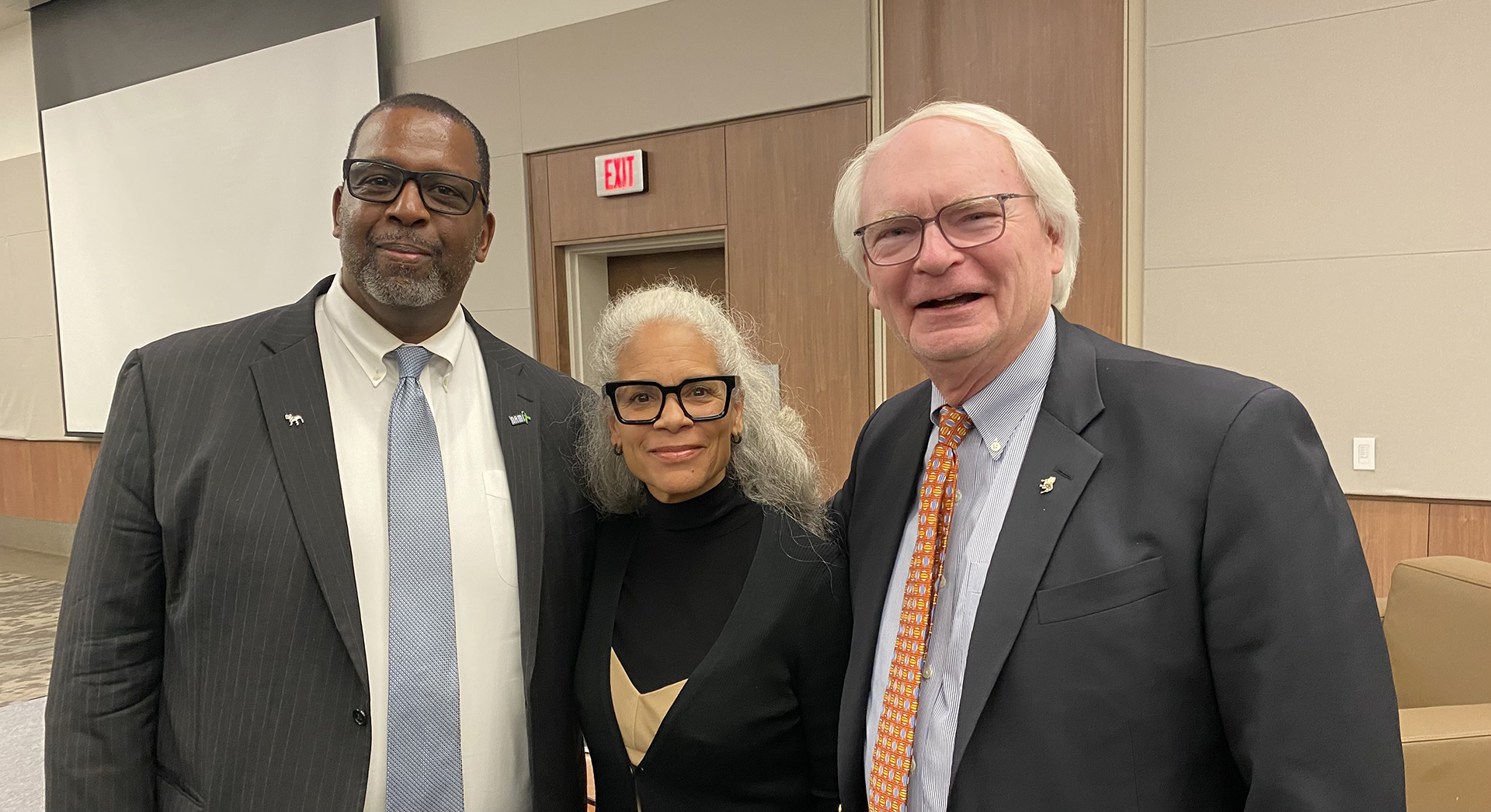March 27, 2025
Mental wellness awareness advocate Kevin Fischer tells Ferris State students stigma prevents many people from seeking help

Kevin Fischer says when people share that they have cancer, they are often quickly surrounded with support.
“But if they say they have a mental illness, how many people come by with casseroles or offer support?” he asked at a gathering in Ferris State University’s David L. Eisler Center on Wednesday.
The difference, he said, is that there is a stigma associated with mental wellness that prevents people from getting help or even talking about the problem. He’s been focused on raising awareness of mental wellness challenges and eradicating the stigma after losing his son, who took his life in 2010.
“Mental illness didn’t kill my son, stigma did,” he said.
Fischer is the executive director of the National Alliance on Mental Illness in Michigan and Crisis Intervention Team International in Michigan. He appeared at Ferris State as part of the second James Family Lecture Series, an effort guided by alumna Dana King.
Fischer spent time Wednesday meeting with students in the College of Pharmacy, College of Health Professions, and Michigan College of Optometry before taking part in an evening discussion with King, College of Pharmacy Dean Stephen Durst and Dean of Student Life Lina Blair.
NAMI is the nation’s largest grassroots mental health organization dedicated to building better lives for the millions of Americans affected by mental illness.
Fischer is a retired businessman. He joined NAMI in 2011 after his oldest son, Dominique, was diagnosed with mental illness in 2007 and was lost to suicide in 2010. He became the organization’s executive director in 2014.
“I need to be the resource Dominique and I did not have,” he said. “This has been life changing, if not lifesaving for me.”
NAMI has more than 700 affiliates across the country, with an expanding presence in Central Michigan.
Fischer is also the founder of the Dominique Fischer Memorial Foundation and serves on several boards, including an appointment by Gov. Whitmer to the state’s Suicide Prevention Commission.
He said one in five adults in the United States are affected by mental illness each year, with one in 20 experiencing serious challenges.
The problem is affecting a growing number of young people, with numbers climbing more rapidly after the pandemic. Fischer said 74 percent of students identified at times as being stressed to the point of being unable to cope.
Suicide, he said, is the 11th leading cause of death in the country, increasing by 35 percent since 1999.
“Many people think suicide prevention is calling 9-8-8, the National Mental Crisis hotline,” he said. “But it’s much more than that.”
Fischer noted addressing challenges such as food insecurity, housing insecurity, and poor access to healthcare can play a large role in addition to raising awareness of mental health resources.
But he said eliminating the stigma of mental illness is key, saying it is the leading barrier to early diagnosis and treatment.
Blair noted that Ferris State is increasing its resources for students through its Care Team and Personal Counseling Center. Ferris State opened a food pantry in the Eisler Center to help students, and last year, the university formed a partnership with Pine Rest Christian Mental Health Services to provide students with greater access to support.
King, an award-winning journalist and accomplished sculptor, and the university was completely focused on academic success when she graduated from Ferris.
“Now, the whole student is considered,” said King, a member of The Ferris Foundation Board of Directors. “You can do anywhere and ask for help. I’m really happy to see that happen because life is stressful, especially now.”
The crisis is personal for King, who said the lecture series is a result of loss. Her nephew took his life in 2021.
“He had suffered from an invisible illness; he suffered from depression,” she said. “While we all knew it, and we all worked with it, we didn’t know the extent and the depth of his pain.”
King said the hope for the lecture series and a scholarship for pharmacy students is to support their growth academically and personally and see patients as people with struggles who they can assist.

